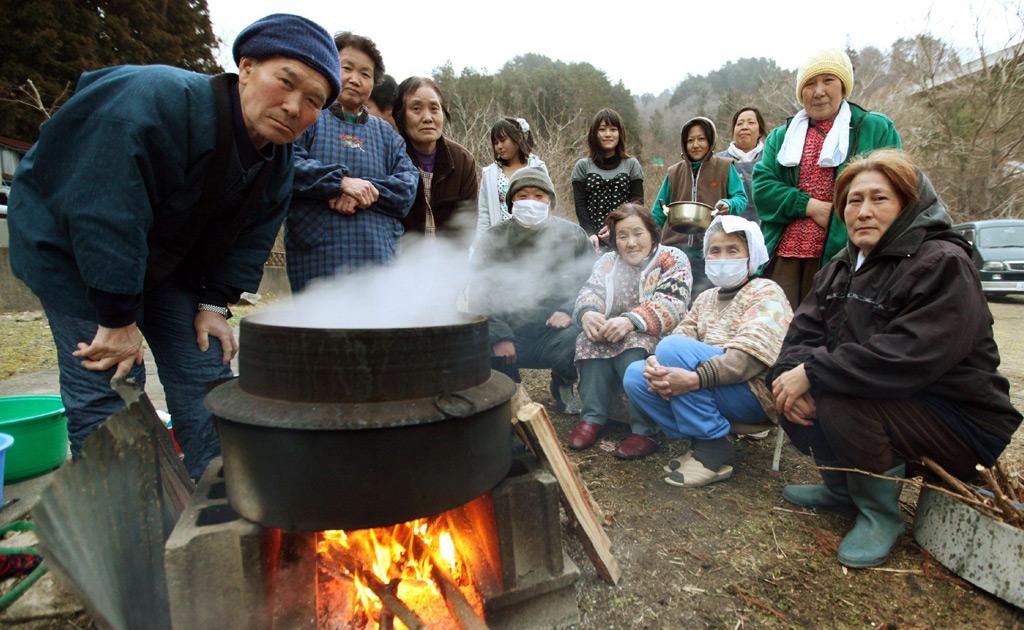Japan: Radioactive rice found near Fukushima
Local residents cook steamed rice at Onagawa town in Miyagi prefecture on March 25, 2011.
The Japanese government has placed a ban on rice produced near the Fukushima nuclear plant for the first time, after dangerous levels of radioactive contamination were detected.
Rice produced at a farm about 60 kilometers northwest of the plant showed a concentration of cesium well above the safety limit, Agence France Presse reported.
Food safety officials measured 630 becquerels of cesium per kilogram of rice. The government safety limit is 500 becquerels.
More from GlobalPost: Radioactive soil in Japan unsafe for farming, say scientists
Ministers have ordered a ban on shipments from the Onami district of Fukushima city, where the contaminated rice was produced. A total of 154 farms, with 192 tonnes of crops this year, will be affected.
The ban will remain in place until the area's rice crop can be confirmed safe, according to the Ministry of Agriculture.
None of the contaminated rice reached the market, Chief Cabinet Secretary Osamu Fujimura said.
More from GlobalPost: Fukushima radiation 'two times higher' than estimates
The news comes two days after an international research team warned that levels of soil radiation in Fukushima prefecture were above the safe limit for farming.
Many other foods have been suspected of contamination since the nuclear crisis at Fukushima, the BBC noted, but this is the first time rice – a staple of the Japanese diet – has been reported unsafe.
Prime Minister Yoshihiko Noda will continue to eat rice produced near Fukushima, the Japan Times reported. Noda switched his supply last month in order to support local farmers, he said on his blog.
More from GlobalPost: Japanese lawmaker drinks Fukushima water
Every day, reporters and producers at The World are hard at work bringing you human-centered news from across the globe. But we can’t do it without you. We need your support to ensure we can continue this work for another year.
Make a gift today, and you’ll help us unlock a matching gift of $67,000!
